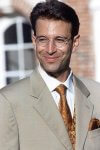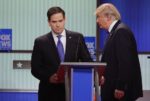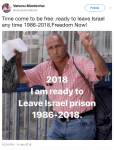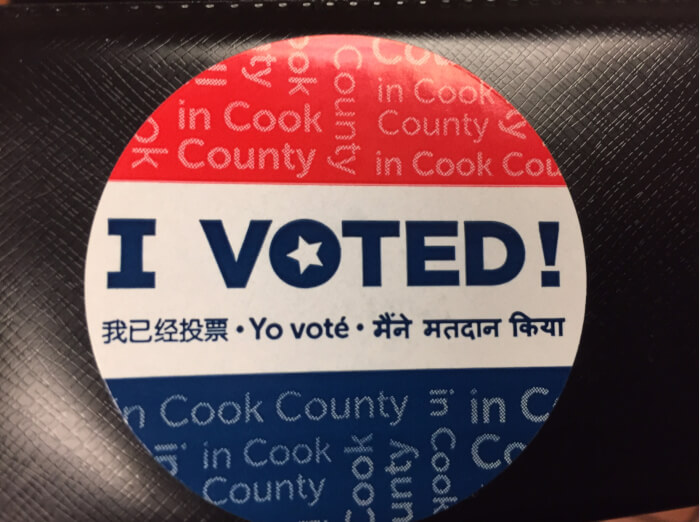Harsh anti-Normalization undermines Palestinian interests
Anger and emotion has driven many Palestinians to oppose any contacts with Israelis, calling it “normalization.” That’s a errant policy and a mistake, and it is misleading. Normalization is used by extremists to block any contacts between Palestinians and Israelis regardless of the intended outcome under the misleading belief that contacts will strengthen Israel’s influence and undermine Palestinian rights. In truth, contacts with Israelis can help Palestinians strengthen not only their base of support, it can weaken Israeli extremism by undermining their false base built on lies and facts
By Ray Hanania
I read an interesting news story written by my journalism friend and colleague Ali Younes this past week at the Aljazeera English website that I am sure has brought him some grief from Arab activists and challenged the extremist practice of anti-Normalization.
Younes is an anomaly. He is a real journalist who practices professional journalism with the goal of producing facts and informing his readers with accurate information. That’s not what all journalists in the Arab World do. Many so-called Arab journalists are really activists who have disguised their activism under the false claim of being journalists.
Normally, a journalist that inserts his or her opinions in a story labels their stories as “columns,” “Op-Eds” for Opinion Editorials, or Informed Commentary. They write “opinion columns,” something I do all the time. Expressing a viewpoint and publicly labeling it as an Opinion Commentary reflects honesty and accuracy.
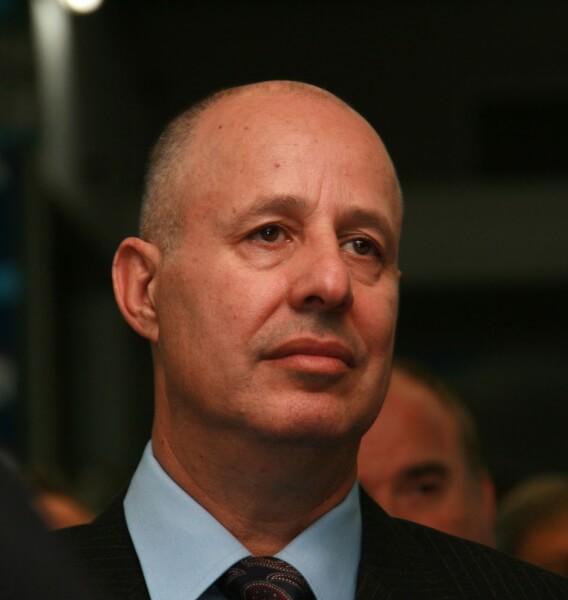
But many times, activists want their opinions to appear as if they are factually written news stories, when they are not. Sadly, the Palestinian community is filled with news and information sources that claims to be “news” sources but in fact are writing opinions they disguise as “news.”
So when I read Younes, and he writes a “News” story, I know that his writings are real news, not opinion commentary disguised as news.
What made Younes’ news story so interesting is that he broke another common failed Arab journalism practice, which is to surrender to the pressures of the extremists and embrace anti-normalization when it comes to Israel. These fake journalists don’t interview Israelis and instead write whatever they wish to pretend to reflect Israel’s views in order to promote their opinions.
But not Younes. Younes actually interviewed an Israeli official about the most important story Palestinians face today, the future status of Jerusalem.

Younes interviewed Tzachi Hanegbi, Israel’s Minister of Regional Cooperation. And despite the propaganda from extremists who are hoping to fuel rejection of anything that might achieve peace based on compromise, Younes story challenges those assertions. The extremists only want total all-out victory over Israel, something they will never get. But they are willing to sustain Palestinian suffering as the price of their stand.
In the interview, Hanegbi openly acknowledges that although Israel claims that the city of Jerusalem is and always will be the “undivided capital” of Israel, the city’s final status borders are subject to negotiations with the Palestinians.
In other words, despite all the Israeli rhetoric from rightwing Israel extremists, the truth is that the rhetoric may not be true.
Why do the Arab extremists insist on fanning the flames of Israel’s worst rhetoric? Because they believe that by extinguishing the hopes and dreams of Palestinians who want peace, they can force them to rally behind extremist leadership, surrendering power to the extremists. The only power base that the extremists have is their stranglehold on the emotions of the Palestinian people. If they can keep Palestinians on an emotional ledge, they can protect their feeble power.
The extremists can’t achieve anything but they can keep their leadership as long as they can keep Palestinians embracing hatred, anger and emotion.
Younes interview of the Israeli Tzachi Hanegbi challenges both of the extremist claims that the only option Palestinians have is to fight and boycott ALL of Israel, not just the occupied territories, and the assertion that peace is not possible because Israel’s “facts on the ground” stand in the way of peace.
Another reason why Younes’ article is important is that it exposes the truth about Israeli Prime Minister Benjamin Netanyahu.
Netanyahu is a fanatic, a right wing anti-Peace Arab hater whose extreme rhetoric enflamed the public so mach during the beginnings of the Camp David Peace Accords that one of his followers, Yigal Amir, was moved to assassinate Israeli Prime Minister Yitzhak Rabin in November 1995.
If we Palestinians believe that Netanyahu rhetoric is truth, rather than his desires, then we can be convinced there is no hope for peace. But if we know the truth, that not everyone in Israel believes Netanyahu’s extreme rhetoric and claims, or that his words are carved in stone.
Boycotting all of Israel benefits the extremists. It gives Israel a strength that they might not have. Israel is stronger because of the extremism and uncompromising attitudes of the Palestinians who claim to be our leaders.
Extremism on both sides, Palestinian and Israeli, is the reason why the Arab-Israeli conflict continues to exist. Extremists do not want compromise. They are using President Trump’s rhetoric and actions, and Israel government’s policies of Apartheid Racism, as a cover to justify rejecting all negotiations and talks with Israel.
The truth is that the extremists are still a minority in a region of moderate Arab views which continue to support peace based on compromise and behind this façade built by the extremists is a genuine possibility that peace can be achieved.
And that’s why Younes article is so important. It demonstrates in a substantive way that despite disagreements with Israeli leaders, and their harsh rhetoric, they are not inflexible. The opportunity to change Israel is there.
But the extremists don’t want to change Israel. They want to destroy Israel. And short of destroying Israel, they would rather make Palestinians continue to suffer and live in despair.
Palestinian despair fuels the foundation of the extremist movement. Keeping Palestinians from hearing the truth from Israelis like Tzachi Hanegbi keeps the Palestinian masses in line with the extremist agenda.
In my opinion, the Saudi leadership is working behind-the-scenes to push President Trump to balance off concessions to Israel by forcing Israel to accept the Saudi-sponsored peace plan.
Crown Prince Mohammed Bin Salman, the future Saudi King whose father has helped consolidate power, has made the eradication of extremism one of his priorities. MBS has strengthened ties with Trump and Kushner, which is a smart move considering that neither Trump nor Kushner have any real experience in politics or Middle East peace so that gives the peace plan a better chance today than it ever had under predecessors President Bill Clinton, President George W. Bush or President Barack Obama.
Many believe that MBS is the real power in Saudi Arabia helping to define Saudi policy by influencing his father, King Salman bin Abdulaziz Al Saud.

MBS has reportedly gotten very close to President Trump which some might argue is wrong but I believe gives Saudi Arabia huge leverage of a vast American desert of inexperience including an inexperienced President Trump, an inexperienced Jared Kushner, and the mutual US and Saudi animosity against Iran. That puts the Saudi Peace Plan closer to Trump and closer to reality than the Camp David Accords that Rabin signed with Palestinian Liberation Organization leader Yasser Arafat at the White House in October 1993.
Click here to read the story by Ali Younes.
Despite the polices and practices of Israel’s extremist Government, there is a lot of good in Israel that we should be reinforcing and strengthening. There are many courageous Israeli writers we should be supporting, not covering in a veil of “anti-normalization.” Those writers include the writings of Haaretz columnists Bradley Burston and Gideon Levy. We should be supporting, not boycotting, Israeli and Jewish groups like J Street, Jewish Voice for Peace, the New Israel Fund, B’Tselem and many other groups.
A blanket boycott of anything Israel and some extremists int he BDS movement demand, is counter productive to the interests of Palestinians and the goal of Palestinian Statehood.
We should be talking with Israelis and we should be interviewing everyone, including people like Netanyahu to get to the truth of their rhetoric.
(Ray Hanania is an award winning Palestinian American columnist, author and former Chicago City Hall reporter and journalist. He writes opinion columns for a number of publications including the Arab News in Saudi Arabia, and for several American newspapers. In the past, Hanania has written Op-Ed columns for the rightwing Jerusalem Post Newspaper, and the centrist YnetNews.com Israeli website. Reach Hanania by email at rghanania@gmail.com.)


- Israelisnipers shooting and killing hospital workers in Gaza - December 11, 2023
- CAIR Condemns Israeli Executions of Wounded, Unarmed Palestinian in West Bank - December 11, 2023
- Arab and Muslim American voters face a “simple choice” between Biden’s inhumanity and Trump’s edgy politics - December 9, 2023














